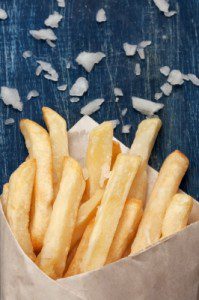 At the age of 10, Nicole, like so many children adored her mom. One day, the two were at the park playing and having a great time. Suddenly her mom fell to the ground and died. Nicole was traumatized by that event, but her family struggled through the grief. Her mom had an undiagnosed brain aneurism.
At the age of 10, Nicole, like so many children adored her mom. One day, the two were at the park playing and having a great time. Suddenly her mom fell to the ground and died. Nicole was traumatized by that event, but her family struggled through the grief. Her mom had an undiagnosed brain aneurism.
Trying to cope with the sudden and unexpected loss of her mom, Nicole turned to food for comfort. Eventually, she gained weight and became obsessed with eating and dieting. Food occupied her thoughts. Later, her brother was killed in a car accident. In college, Nicole was date raped and ended up in a therapist office diagnosed with PTSD (Post Traumatic Stress Disorder). She described an addiction to food, needing it to calm her down and bring her feelings of comfort.
Researchers at the University of Minnesota School of Public Health, Minneapolis recently published a study is JAMA Psychiatry that looked at the relationship between PTSD and eating. What they found was that women with symptoms of PTSD are twice as likely to have food addiction than women with no such history. And when those women experience trauma early on in life, the likelihood of eating problems is even greater. In fact, the more trauma symptoms, the more likely the connection between trauma and food addiction. But this is only a connection and not a cause. One caution is that a person with food addiction could experience trauma, so there is no direct cause involved here, just an association.
Food addiction is a type of psychological dependence on eating and is still somewhat controversial as an actual addictive disorder. That said, it makes sense that some women would turn to food for comfort when traumatized. Previous research has supported the idea that obesity and underweight are linked to trauma.
So if you have experienced trauma and find yourself overeating to reduce anxiety, work with a therapist to cope in other ways. Food problems and psychological dependence bring another set of problems into functioning in daily life. Therapist who work with eating disorders can help you learn other ways to cope than using food.


